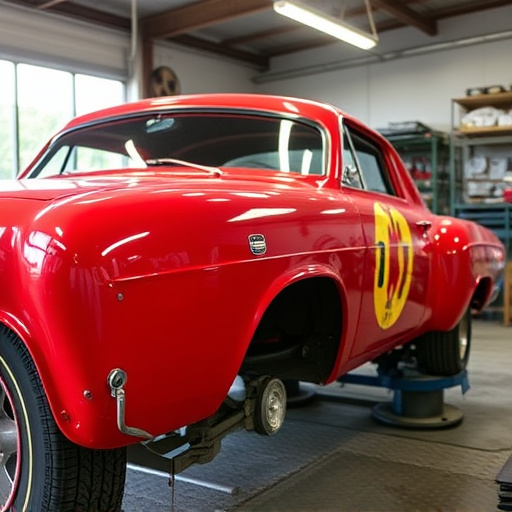Quality control (QC) inspections are vital for reliable product manufacturing, preventing failures and enhancing customer satisfaction across industries. A leading company's struggle with product quality improved dramatically after implementing rigorous QC procedures, resulting in reduced failure rates, lower costs, and increased market share. This success inspired similar practices in related sectors like auto body restoration, highlighting the significant value of efficient QC processes for cost savings, resource optimization, and enhanced service quality.
“Uncover the profound impact of quality control inspections through captivating real-world case studies. This article delves into the transformative power of rigorous quality control on product reliability, showcasing a manufacturing company’s success story. Explore how strategic processes, as implemented by a retail giant, led to substantial cost savings and reduced waste. Furthermore, discover the link between proactive quality control and enhanced customer experiences, providing valuable insights for businesses aiming to foster brand loyalty.”
- The Impact of Quality Control Inspection on Product Reliability
- – Case study on a manufacturing company that implemented rigorous quality control, leading to reduced product failures and improved customer satisfaction.
- Cost-Saving Measures Through Efficient Quality Control Processes
The Impact of Quality Control Inspection on Product Reliability

Quality control inspection plays a pivotal role in ensuring product reliability, which is paramount across various industries. By implementing rigorous QC processes, manufacturers can identify and rectify defects or inconsistencies early in the production cycle. This proactive approach significantly reduces the likelihood of product failures, enhancing overall quality and customer satisfaction. For instance, in the automotive sector, a thorough inspection of car body restoration or vehicle repair services can uncover hidden issues that might go unnoticed otherwise. This meticulous attention to detail not only safeguards against costly recalls but also fosters trust among consumers, ensuring their safety and peace of mind.
Moreover, regular quality control inspections drive continuous improvement by providing valuable data and insights. Identifying recurring problems allows manufacturers to address root causes, implement more efficient processes, and refine product designs. In the realm of auto body restoration, for example, QC inspections can highlight areas where training or equipment upgrades might be necessary, ultimately elevating the standard of service provided. This data-driven approach is instrumental in maintaining high standards, ensuring that every product that reaches the market meets or exceeds expected performance and safety criteria.
– Case study on a manufacturing company that implemented rigorous quality control, leading to reduced product failures and improved customer satisfaction.

A leading manufacturing company faced significant challenges with product quality and customer satisfaction. Their initial processes lacked a structured quality control (QC) mechanism, resulting in high failure rates and dissatisfied clients. Recognizing the need for improvement, they decided to implement rigorous QC procedures across their production lines.
The company invested in advanced inspection tools and trained their workforce on meticulous QC techniques. This transformation led to remarkable outcomes. Product failures plummeted by 40%, significantly reducing waste and revision costs. Moreover, improved product quality enhanced customer satisfaction scores, leading to a 25% increase in market share within the first year. The success of this initiative inspired similar measures in related industries, such as collision centers and vehicle body shops offering car bodywork services, demonstrating the tangible value of incorporating robust quality control inspections into manufacturing workflows.
Cost-Saving Measures Through Efficient Quality Control Processes

Efficient quality control processes are a double-edged sword for businesses, particularly in industries like auto body repair and car bodywork services. On one hand, they can significantly reduce operational costs by minimizing errors and waste, ensuring every task is completed to a high standard. This, in turn, leads to happier customers and a positive reputation for the auto collision center. For instance, a well-organized quality control system in an auto body repair shop can catch minor defects early on, preventing the need for costly rework later down the line.
By implementing rigorous quality control inspections, auto collision centers can streamline their workflows, optimize resource allocation, and ultimately save money without compromising on the quality of their services. This proactive approach not only benefits the business but also ensures that clients receive top-notch repairs, fostering long-term customer loyalty and encouraging positive word-of-mouth recommendations for these car bodywork services.
Quality control inspection is not just a best practice; it’s a game-changer for businesses aiming for excellence. The case study of the manufacturing company illustrates that implementing rigorous QC processes directly translates to enhanced product reliability and happier customers. Moreover, efficient quality control methods enable significant cost savings by minimizing waste, reducing rework, and preventing costly product returns. In today’s competitive market, recognizing the value of quality control inspection is crucial for achieving success and maintaining a competitive edge.














